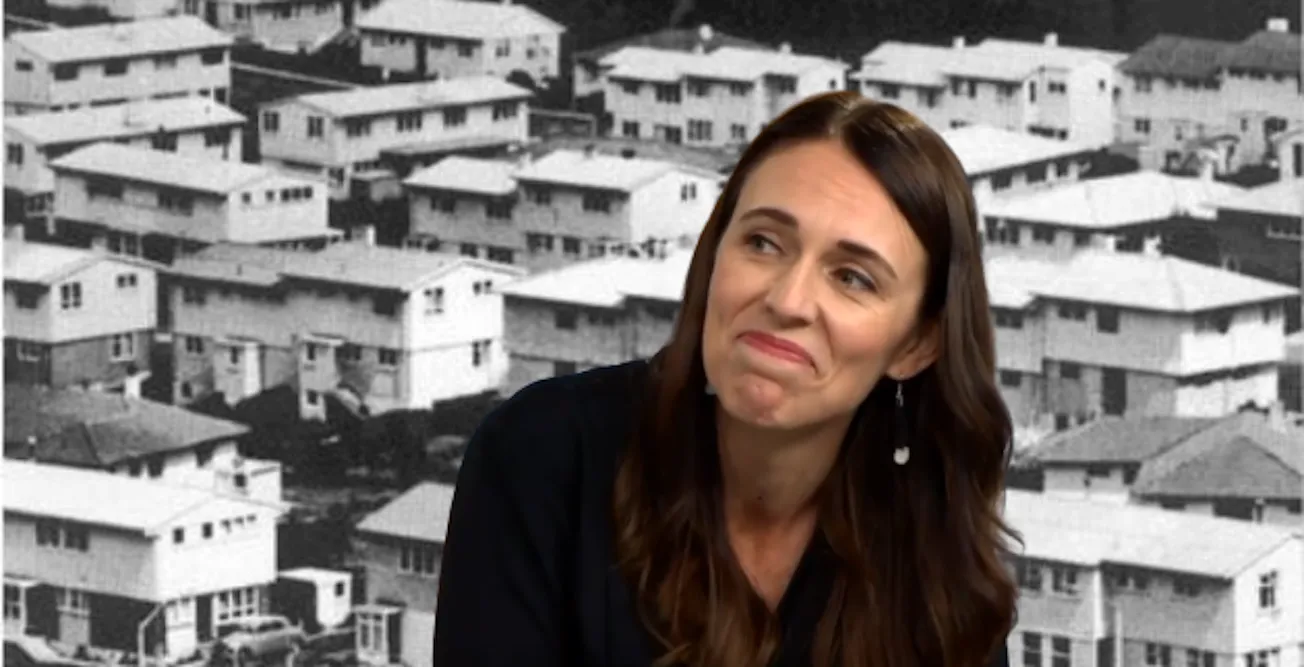Table of Contents
Grant Robertson and Jacinda are now claiming that they intend to ‘tip the housing market’ in favour of first-time buyers. How exactly they are going to do this is unclear. What is abundantly clear is that they haven’t got a clue how to tip the housing market in any direction whatsoever.
They have now forced the Reserve Bank into ‘considering’ housing every time they draft a new policy. Some people have said that this undermines the independence of the Reserve Bank, but that is questionable. All the Reserve Bank has to do is to claim that they did ‘consider’ housing when they implemented any policy, whether it affects the housing market or not. The Reserve Bank is concerned primarily with the banking system. Protecting the integrity of New Zealand’s banking system and making sure that we don’t turn into the Greece of the South Pacific is its main function, and they will implement whatever policies they can to maintain that position.
After all, it can hardly be said that the Reserve Bank is ‘considering’ housing with its return to the LVR system. While it now requires investors to have a 40% deposit before qualifying for a mortgage, it also requires those purchasing a home for themselves to have a deposit of 20%. This affects first-time buyers most, of course. The LVR rules were loosened during 2020 because of COVID, and in the meantime, house prices have shot up over 20%. It is now estimated that the average house costs approximately $200,000 more than it did one year ago. This means that an average 3 bedroom house will now cost in the region of $800,000; a figure that is largely backed up by recent house sales in Lower Hutt and the Wellington region. But to buy that house, a first-time buyer will need a deposit of about $160,000. Yes, there are some mortgages lent on lower deposits, but the bank’s policy is to enforce 20% deposits in a large number of cases.
I know someone who has a deposit of $80,000 and is looking for a house in the Hutt Valley. This will enable her to buy a property worth about $400,000. There is no such thing in the Hutt Valley, even in the suburbs where realistically, no one wants to live. So, please explain to me how the reintroduction of the LVR policy tilts the market in favour of first-time buyers, because I just don’t see it.
It doesn’t, of course. The LVR policy has been reintroduced to protect the banking system. The banks do not want to be caught out if there is a housing crash – seemingly unlikely at the moment, but these things do happen, and the market has to cool eventually.
Things became even sillier last week when Reserve Bank governor, Adrian Orr hinted that one way of reducing housing pressure might be to ban house auctions. You know things have reached peak stupid when suggestions like this are bandied around, particularly by someone who could do a lot more to reduce housing pressures – for example, by raising interest rates – than he has. That, along with suggestions to prospective investors to stop buying houses has an air of desperation about it. It proves that the government and the Reserve Bank do not have a clue what they are doing, and it shows.
Actually, that is not quite true. Everything that involves Jacinda Ardern is all about optics. She is signalling to the media that she wants those mean, nasty, ugly investors stopped… but she doesn’t. Not really. The very fact that Kainga Ora had to buy up $750 million of existing housing stock to increase its social housing means that the government is more guilty than anyone of pulling the rug from under first-time buyers but it is not to be seen like that. The truth is, the government needs investors to provide private rental housing. Without them, the housing issue will be made much worse, and the government knows it.
Why then, you might ask, the beat up on landlords? Again, it is optics. No socialist government can be seen to be encouraging any sector of the market to get rich off the backs of the downtrodden. They have to beat the relevant drum to please their socialist mates, but they also have to make sure they don’t go so far that they discourage private landlords all together. In a game of cat and mouse, I am really not sure if the government is the cat or the mouse, but private landlords have certainly benefited from government housing policies in the last few years.
So here is my prediction for the housing market in the not-too-distant future. House auctions will continue. We haven’t reached Stalingrad-like status quite yet. The Bright Line Test will be pushed out to 10 years (but remember it will only apply to investment properties bought after the date the new test period is introduced, so it will make no difference for the next 6 years or so, if then). The LVR requirement for investors will be increased to a 50% deposit, which will not be a problem to most investors, as they will leverage off other properties which have enjoyed a significant increase in value in the last year. This may tilt the market in favour of first-time buyers, but only slightly. The higher deposit might deter some investors, but probably not many.
As I said, it is all nothing more than optics. The government will look as if it is trying to cool the housing market but it will make little difference in the end. But these things are all cyclical and the market will run out of steam eventually. Then the government will take credit for solving the housing crisis when it actually did no such thing, but, as always with Jacinda, if she says something often enough, it becomes a truth. At least, it becomes her truth. No one else will fall for it.
Please share this article with others so they can discover The BFD









